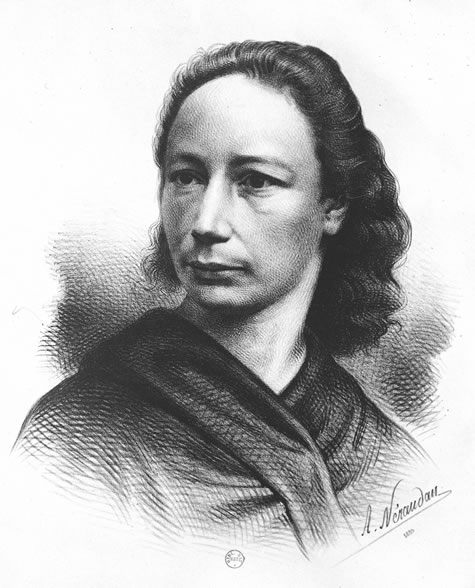
Gentle Readers, you might have realized that, as of late, there have been a spate of posts about Victor Hugo. Now, why is this you might ask? To build up to Victor Hugo's birthday today, of course!
The Amateur Historian, it must be admitted, feels herself unworthy of snarking just one moment of Hugo's life on his birthday, of all days, and so will let Graham Robb, who is quite possible The Literary Biographer of 19th century French authors, do the talking for her:
"[During the Paris Commune, the] whole city had paid tribute [to Victor Hugo], from the actress who called herself to 'Cosette' to the schoolteacher who called herself 'Enjolras'... 'Enjolras' was Louise Michel, soon to be adored and detested as one of the fiercest anarchists of the Commune, the so-called 'Red Virgin'. The thought of this martyr of socialism baring herself in front of her childhood hero has caused some discomfort to her admirers. A broad-minded socialist regime might have made it the subject of a commemorative postage-stamp."
The Amateur Historian would never use any other postage-stamp ever.


